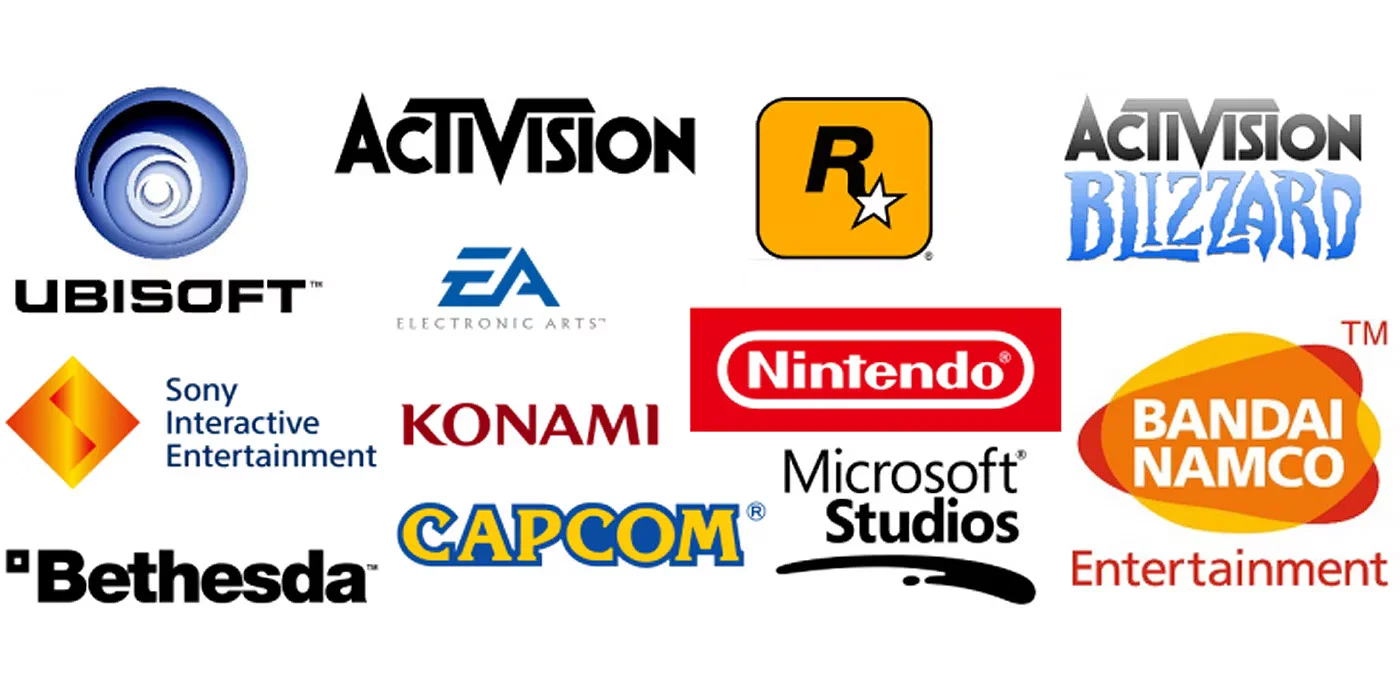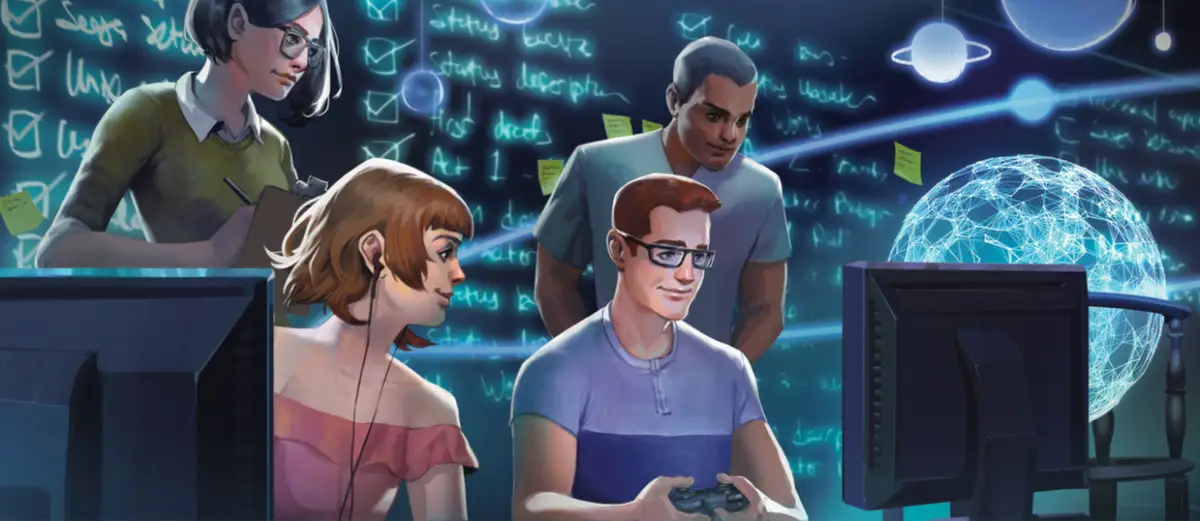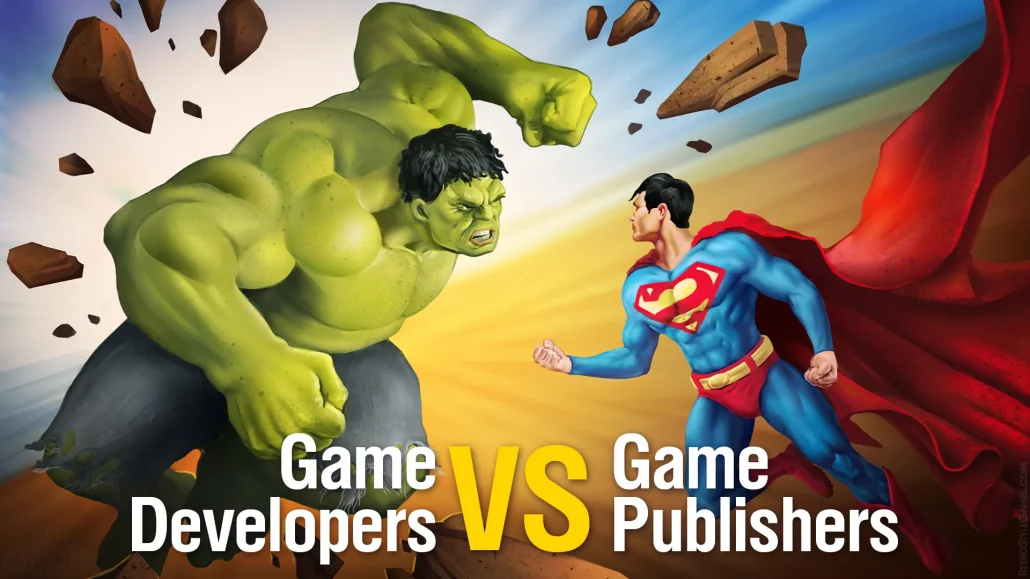The world of gaming is a dynamic and ever-expanding realm that captivates millions worldwide. Behind the scenes of every captivating game lies a diverse ecosystem of talented individuals and companies, with game developers and publishers at the forefront. In this comprehensive guide, we will embark on a journey through the gaming industry, shedding light on the fundamental aspects of game development and the pivotal role of publishers.
We’ll delve into what it means to be a game developer, explore the intricate game development process, dissect the various roles within game development teams, and uncover the challenges faced by these creative minds. Additionally, we’ll demystify the role of game publishers, their significance in bringing games to the market, and the intricate relationship that exists between developers and publishers. By the end, you’ll have a comprehensive understanding of the role of game developers and publishers, shedding light on the inner workings of this captivating industry.
What is a Game Developer?


A game developer is a creative professional or a team of individuals responsible for designing, creating, and bringing video games to life. These skilled individuals are the architects of the gaming experience, blending technical expertise, artistic talent, and innovative ideas to craft interactive worlds and engaging gameplay. Game developers encompass a wide range of roles, including programmers, artists, designers, writers, and sound engineers, each contributing their expertise to different facets of game creation.
Whether working independently on indie projects or as part of larger game development studios, game developers share a passion for pushing the boundaries of technology and storytelling to deliver immersive and entertaining gaming experiences to players around the world.
The Game Development Process


The game development process is a structured journey that transforms creative concepts into playable digital experiences. It typically comprises several key stages:
- concept and design
- pre-production
- production
- testing
- post-production.
During the concept and design phase, developers brainstorm game ideas, create design documents, and establish the game’s core mechanics and storyline. In pre-production, detailed planning takes place, including concept art, prototyping, and initial programming. Production involves asset creation, coding, level design, and the integration of various elements.
Testing is a critical phase where quality assurance teams identify and rectify bugs and glitches. Post-production encompasses polishing, optimization, and preparing the game for release. Throughout this process, collaboration among developers, designers, artists, and other team members is essential to ensure a cohesive and enjoyable gaming experience.
The Roles of Game Developers


Game development teams comprise diverse roles, each contributing to different aspects of the game’s creation. Here are some key roles and their responsibilities:
- Game Programmer: Programmers write the code that powers the game, implementing gameplay mechanics, AI behaviors, and system functionality.
- Game Designer: Game designers focus on creating the game’s overall design, including level layout, gameplay mechanics, and player experiences.
- Game Artist: Artists are responsible for the visual elements of the game, including character design, environment art, animations, and visual effects.
- Game Writer: Writers craft the game’s narrative, dialogue, and storytelling elements, ensuring a compelling and immersive experience.
- Sound Designer: Sound designers create audio assets, including music, sound effects, and voiceovers, enhancing the game’s atmosphere and immersion.
- Quality Assurance (QA) Tester: QA testers rigorously playtest the game, identifying and documenting bugs and issues for developers to address.
- Producer: Producers oversee the development process, managing schedules and budgets and ensuring that the project aligns with the vision and goals.
- Game Director: Game directors provide creative direction and vision for the project, guiding the team toward achieving the desired player experience.
- Level Designer: Level designers craft the layout and design of individual game levels, creating challenges and pacing.
- UI/UX Designer: UI/UX designers focus on the user interface and user experience, ensuring the game is accessible and user-friendly.
These roles collaborate closely to harmonize their talents and expertise, ultimately delivering a cohesive and enjoyable gaming experience. The game development process thrives on innovation, teamwork, and a shared commitment to realizing creative visions in interactive form.
Challenges for Game Developers


Game development is an exhilarating but complex journey fraught with various challenges. One of the foremost hurdles is maintaining a delicate balance between creative ambition and technical constraints. Developers often face tight deadlines and budgets, requiring efficient project management and resource allocation. The ever-evolving landscape of technology demands continuous adaptation and learning while optimizing game performance across different platforms and hardware configurations can be daunting.
Another critical challenge is ensuring gameplay balance and engaging mechanics, as well as addressing player feedback during the development process. Additionally, the industry’s competitive nature necessitates effective marketing and distribution strategies to stand out in a crowded market. Lastly, addressing issues like inclusivity, diversity, and ethical concerns has become increasingly important as the gaming community continues to grow and diversify.
What types of Game Developers Are There?


Game development encompasses a diverse array of roles and specializations, each contributing to different aspects of the creative process. We have already addressed programmers, designers, artists, writers, sound designers, QA testers, producers, game directors, level designers, and UI/UX designers. So here are a few more:
- Monetization Specialists: These developers focus on in-game monetization strategies, such as microtransactions and in-game ads.
- Indie Developers: Indie developers work on smaller, often self-published projects, handling multiple roles and enjoying creative freedom.
- VR/AR Developers: Developers specializing in virtual and augmented reality technologies create immersive and interactive experiences.
- Mobile Game Developers: These developers create games tailored for mobile devices, considering touchscreen controls and accessibility.
- Console Game Developers: Developers working on console games optimize their creations for specific gaming platforms like PlayStation, Xbox, or Nintendo.
- PC Game Developers: PC game developers target gaming PCs, considering a wide range of hardware configurations and performance factors.
These various types of game developers often collaborate closely within teams or studios, combining their expertise to create captivating and entertaining games for players worldwide.
What is a Game Publisher?


In the world of video games, a game publisher is a company or entity responsible for bringing a video game to the market. Game publishers handle various aspects of game development, marketing, distribution, and financing. They act as intermediaries between game developers, who create the games, and the audience of gamers.
Publishers often invest in the development process, covering costs related to production, marketing, and distribution. They also assist in securing licenses, managing intellectual property, and ensuring that the game reaches its target audience through various platforms and distribution channels.
Read More: Game Publishing | The Role, Difference, and Top Publishers
Role of Game Publishers
Game publishers play pivotal roles in the success of a video game. Their responsibilities include:
- Funding and Investment: Publishers often provide financial resources to game developers, enabling them to bring their creative visions to life. This financial support covers development costs, marketing expenses, and more.
- Quality Assurance: Publishers assist in quality control, ensuring that the game meets industry standards and is free from critical bugs and issues before release.
- Marketing and Promotion: Publishers employ marketing strategies to create awareness and anticipation for the game. This includes advertising, social media campaigns, trailers, and promotional events.
- Distribution: Publishers handle the distribution of physical copies of the game to retail stores, as well as digital distribution through online platforms like Steam, Epic Games Store, and consoles’ digital storefronts.
- Platform Negotiation: Publishers often negotiate with platform holders (e.g., Sony, Microsoft, Nintendo) to secure deals for game releases on specific gaming consoles or platforms.
- Localization: Publishers may oversee the localization of games, ensuring that they are available in multiple languages to reach a broader global audience.
- Intellectual Property Management: Publishers help protect the game’s intellectual property, including trademarks, copyrights, and licensing agreements.
- Monetization Strategies: Publishers assist in designing and implementing monetization strategies, which may include DLC (Downloadable Content), microtransactions, and in-game advertising.
Relationship Between Game Developers and Publishers


The relationship between game developers and publishers is often a symbiotic one, with both parties working together to achieve a successful game launch. Developers benefit from the financial support, marketing expertise, and distribution channels that publishers provide. In return, publishers rely on the creativity and technical expertise of developers to create compelling and marketable games.
However, this partnership can also be complex and occasionally contentious. Developers may need to strike a balance between creative freedom and meeting publisher expectations, and conflicts can arise over issues like development timelines, creative direction, and revenue-sharing arrangements.
In recent years, some game developers have opted for self-publishing, leveraging digital distribution platforms and crowdfunding to fund their projects independently. This trend has challenged the traditional publisher-developer relationship, offering developers greater creative control but also placing additional responsibilities on their shoulders, such as marketing and distribution.
Ultimately, the relationship between game developers and publishers varies from project to project and can impact the success and trajectory of a video game within the dynamic and competitive gaming industry.
Final Thoughts
In the multifaceted world of game developers and publishers, a symphony of creativity, innovation, and business acumen harmoniously blends to bring interactive worlds to life. Game developers are the visionaries who craft digital experiences, while publishers provide the wings to let those visions soar.
This intricate partnership shapes the gaming landscape, delivering countless memorable adventures to players worldwide. As the industry evolves, the relationship between these two forces continues to adapt, reflecting the dynamic nature of gaming itself. Whether navigating the labyrinthine realm of AAA titles or the boundless creativity of indie games, the collaborative spirit between game developers and publishers remains at the heart of the gaming universe, forging new horizons and captivating gamers of all kinds.


